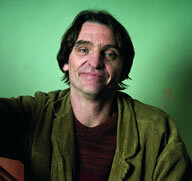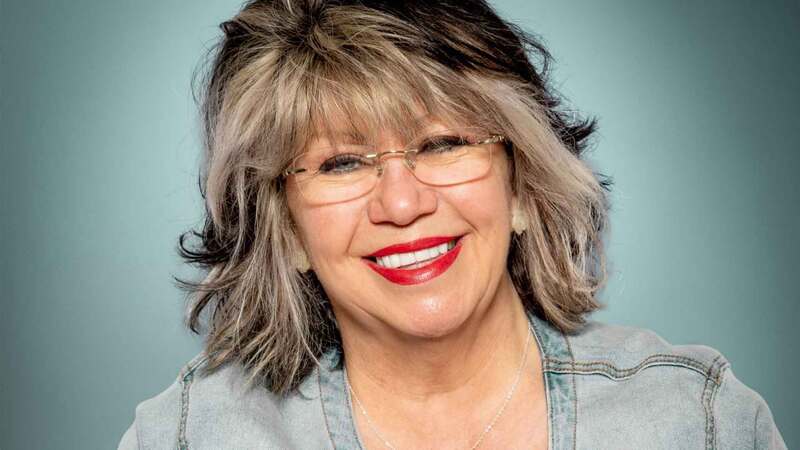You are viewing your 1 free article this month. Login to read more articles.
Melvin Burgess | "I enjoy all the controversy, it’s great, but only if you have a strong argument behind it"
The recession has lasted decades. There is mass unemployment and mass poverty. You are a teenager with no future ahead of you and someone offers you a drug that will give you the biggest and best high of your life, making you feel more alive than you ever have . . . and then kills you a week later—so, do you take a hit of Death?
That is the question facing teenagers across the UK in Melvin Burgess’ new Young Adult thriller The Hit (Chicken House, April). In the face of a lifetime of poverty and inopportunity young people have adopted a euthanasia drug as the Broken Britain drug du jour. When mega-famous rockstar Jimmy Earle dies live on stage after taking it everything changes, especially for Adam and Lizzie, two Manchester-based teens in the audience.
The Hit came about through a collaborative process. Two A-Level philosophy teachers approached Chicken House m.d. Barry Cunningham about writing a novel that touched on life’s “big ideas”, and Cunningham in turn approached Burgess, who says he was attracted to the project because it was an “interesting idea and an idea that had a lot to dig out of it. It’s grim out there (for teenagers), everything costs so much and everything is closing down. The original idea was about the bigger issues—if you’ve got a week to live, it helps focus the mind on what is really important. There was that news story recently about high levels of teenage suicides in Bridgend (South Wales), which seems so incomprehensible, but suicide had reached down to teenagers because it is a place with no future. If you have no future, then the whole live fast, die young thing can make sense.”
I predict a riot
In The Hit anti-austerity riots have reached incredibly high levels of violence. Led by an impassioned group of fighters called The Zealots, suicide bombs, riot gear and heavy-handed police are commonplace. Although the parallels with last summer’s London riots are clear, Burgess explains that “during the riots everyone was saying how disgusting it was and how the rioters were a bunch of criminals, but I couldn’t help but think of Martin Luther King, who said: ‘Riots are the voice of the unheard.’ Someone once said to me: ‘If you come across a 10-year-old, that’s a really experienced child, but if you come across a 13-year-old, it’s a really inexperienced adult.’ I’m always interested in giving teenagers a good press, everyone thinks of them as being ugly, spotty and out of control; that’s the image they have, but actually they’re quite sweet and charming. They’re just shafted whatever way they turn; they don’t want to hang around with their parents, but they’ve got no money, so all they can do is hang out on street corners.”
Of course, with drugs come drug dealers and graphic violence plays a big part in the criminal underworld of Burgess’ version of Manchester: “Smack her in the kidneys or the tits,” says Florence Ballantine, the city’s toughest gangster, about 20-something Zealot Anna at one point. Burgess says he had in mind science-fiction author Philip K Dick at the start of the project and a “thriller that brushes against other things. In a twisted way writing the violence was quite fun, but I found Christian (Ballatine’s uber-violent ‘nut-job’ son, who takes a liking to Lizzie) quite disturbing, I found him creepy. But the thing about it is that you write and it’s horrible and violent but at the end nothing actually happened. It’s just a book.”
Getting real
The Hit is not the first time Burgess has written about hurt and disillusioned teenagers. From 1996’s groundbreaking and Carnegie medal-winning Junk (Andersen Press) about two teenagers, Tar and Gemma, who get sucked into heroin addiction to 2003’s Doing It (Andersen Press) about a group of boys losing their virginity and 2011’s Kill All Enemies (Puffin), which follows three short-fused teenagers in a Pupil Referral Unit, Burgess has written about many of life’s harshest topics, often based on real-life stories.
This has led some to suggest he courts controversy: “When I got that label the big thing with teenage fiction was that everyone was pussyfooting around and wanting to write nice moral stories. The drugs message at the time (of Junk) was ‘just say no’, but my attitude was bad kids need books too, more than good kids even, but of course there are adults that are going to get wound up about it. I’m very proud of those books. I enjoy all the controversy, it’s great, but only if you have a strong argument behind it and I truly believe those books all had a meaning to them and are out there for a purpose, and they’re not just controversial for controversy’s sake.”
Do the hard-hitting themes of his books mean that they are hard to write or does Burgess manage to stay detached? “You have to be attached while you’re writing, especially for those more emotional situations. The bit that broke my heart in Kill All Enemies was when Billie (one of the three teenagers) tries to talk to her mum and begs her to let her stay at home (she’s been put into foster care), that was based on a real person, so that did break my heart. And for Nicholas Dane (Andersen Press, 2009) which is about abuse in care homes, I went to talk to people who had been through that experience and that was quite hard; listening to these guys telling these unbelievably dreadful stories, they were just prisoners in those places. When you’re writing it you can distance yourself a bit, because you’re trying to make a book and make it all fit, but then it gets you again when you’re reading it or presenting it. With that book I was really quaking the first few times I presented it. I’m not sure what this one (The Hit) will do to me, but it’s a different sort of book. It’s not about real things.”
Book Data
Publication date: 04/05/13
Formats: B-format p/b
ISBNs: 9781908435330
Rights: Chicken House has world rights. Rights are optioned for Scholastic USA, Chicken House Deutschland and Chicken House Holland
Editor: Rachel Leyshon
Agent: Caradoc King, A P Watt
Personal File
1954 Born in Twickenham
1990 first novel The Cry of the Wolf (Andersen) published
1996 Junk wins the Carnegie Medal in Literature and the Guardian’s Children’s Fiction Prize
Melvin Burgess Top Five
Junk
Andersen Press, 9780862646325
A frank and honest portrayal of teenagers in Bristol addicted to heroin.
Books sold: 132,521 since 1998
Doing It
Andersen Press, 9780862647889
Three boys are about to discover sex for the first time.
Books sold: 44,810 since 2004
Bloodtide
Andersen Press, 9780862648336
In 2300 London is in ruins and in the hands of two warring families of ganglords, the Volsons and the Conors.
Books sold: 34,256 since 2000
Billy Elliot
Chicken House, 9781903434338
The novelisation of the film “Billy Elliot”, based on Lee Hall’s screenplay.
Books sold: 16,134 since 2001
Lady: My Life as a Bitch
Andersen Press, 9780862647704
A sexually active, rebellious teenager is transformed into a confused and frightened dog by a tramp with magical powers.
Books sold: 15, 192 since 2003









